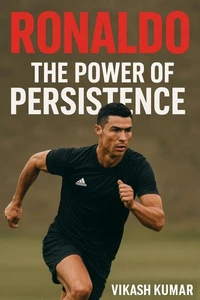The Chicken Cancer Link is a meticulously researched and compellingly argued work by Vikash Kumar that unveils a disturbing yet urgent public health issue: the increasing evidence that industrially produced chicken may play a significant role in cancer risk. Blending rigorous scientific research with a keen understanding of food systems, Kumar investigates how modern poultry farming, processing, packaging, and consumption practices expose humans to a range of carcinogenic hazards.
This book is more than just a critique of industrial agriculture-it's a deeply investigative journey that maps out, in chapter after chapter, the multifaceted ways our daily food choices might be endangering our long-term health. Kumar sets the stage with a sobering overview of global cancer trends and asks why rates of certain cancers are rising even in relatively young populations. Drawing on large-scale epidemiological data, he proposes that diet-and particularly industrial chicken-may be an underestimated factor.
He presents a hypothesis that chicken, now a staple protein in billions of diets worldwide, may carry hidden dangers linked to modern production methods. Kumar describes how chickens today are bred to grow unnaturally fast, fed with genetically modified grains, and raised in cramped, antibiotic-rich environments. These unnatural conditions may lead to bioaccumulation of toxins, hormonal imbalances, and diseases-each with downstream consequences for human health.
He explores how these farming practices create physiological stress in chickens that alter the nutritional and chemical profile of their meat. From arsenic-based compounds like roxarsone (once used to promote growth) to hormone disruptors and antibiotic residues, he shows how feed additives don't just vanish-they end up in the meat. Studies from journals like Toxicology Reports are used to show how these residues can cause DNA damage, oxidative stress, and hormonal interference, all precursors to cancer.
Kumar exposes how chicken becomes even more hazardous during processing and packaging. He highlights the formation of heterocyclic amines (HCAs) and polycyclic aromatic hydrocarbons (PAHs) during high-heat cooking, the use of chlorinated baths, and the dangers of nitrates/nitrites in processed chicken. Plastic packaging containing BPA and phthalates can leach into the meat, and microbial toxins from improper handling further increase cancer risks.
The evidence is drawn from publications like Food Chemistry, Environmental Science & Technology, and BMC Medicine. Even when chicken is safely sourced, Kumar warns that common household cooking techniques-especially frying, grilling, and charring-can elevate the formation of carcinogens. Scientific research highlights how the Maillard reaction, responsible for browning and flavor, can also generate mutagenic substances.
He offers insights on how to cook chicken more safely, without sacrificing flavor.
The Chicken Cancer Link is a meticulously researched and compellingly argued work by Vikash Kumar that unveils a disturbing yet urgent public health issue: the increasing evidence that industrially produced chicken may play a significant role in cancer risk. Blending rigorous scientific research with a keen understanding of food systems, Kumar investigates how modern poultry farming, processing, packaging, and consumption practices expose humans to a range of carcinogenic hazards.
This book is more than just a critique of industrial agriculture-it's a deeply investigative journey that maps out, in chapter after chapter, the multifaceted ways our daily food choices might be endangering our long-term health. Kumar sets the stage with a sobering overview of global cancer trends and asks why rates of certain cancers are rising even in relatively young populations. Drawing on large-scale epidemiological data, he proposes that diet-and particularly industrial chicken-may be an underestimated factor.
He presents a hypothesis that chicken, now a staple protein in billions of diets worldwide, may carry hidden dangers linked to modern production methods. Kumar describes how chickens today are bred to grow unnaturally fast, fed with genetically modified grains, and raised in cramped, antibiotic-rich environments. These unnatural conditions may lead to bioaccumulation of toxins, hormonal imbalances, and diseases-each with downstream consequences for human health.
He explores how these farming practices create physiological stress in chickens that alter the nutritional and chemical profile of their meat. From arsenic-based compounds like roxarsone (once used to promote growth) to hormone disruptors and antibiotic residues, he shows how feed additives don't just vanish-they end up in the meat. Studies from journals like Toxicology Reports are used to show how these residues can cause DNA damage, oxidative stress, and hormonal interference, all precursors to cancer.
Kumar exposes how chicken becomes even more hazardous during processing and packaging. He highlights the formation of heterocyclic amines (HCAs) and polycyclic aromatic hydrocarbons (PAHs) during high-heat cooking, the use of chlorinated baths, and the dangers of nitrates/nitrites in processed chicken. Plastic packaging containing BPA and phthalates can leach into the meat, and microbial toxins from improper handling further increase cancer risks.
The evidence is drawn from publications like Food Chemistry, Environmental Science & Technology, and BMC Medicine. Even when chicken is safely sourced, Kumar warns that common household cooking techniques-especially frying, grilling, and charring-can elevate the formation of carcinogens. Scientific research highlights how the Maillard reaction, responsible for browning and flavor, can also generate mutagenic substances.
He offers insights on how to cook chicken more safely, without sacrificing flavor.

 , qui est-ce ?
, qui est-ce ?